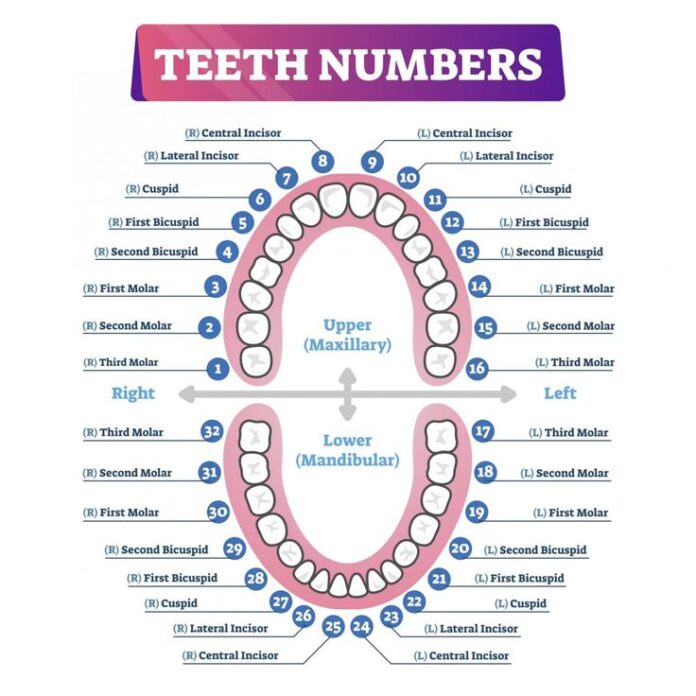We’ve all seen patients with abnormal tooth numbers, whether it’s too many teeth or not enough, but what’s the ideal number of teeth? A new chart from the Academy of General Dentistry (AGD) called The New Teeth Number Chart aims to answer this question by outlining the advantages and disadvantages of each tooth number for your dental health. Here are three things to know about the new chart and its recommendations on the right number of teeth to have.
What Is The Optimal Human Tooth Count According To Science
A recent study has shown that, according to scientific data, the best human tooth count is 32 teeth. This includes a set of 20 baby teeth (also known as deciduous teeth) and a set of 12 adult teeth (also known as permanent teeth). The study was published in the Journal of Dental Research and participants were from Africa, Asia, Europe, and North America.
The study found that those with fewer than 22 deciduous teeth had an increased risk of dental decay, while those with more than 34 permanent teeth had an increased risk of gum disease. While this is not a perfect solution for determining the optimal tooth count, it does provide a solid basis for discussion when considering your next visit to your best orthodontist near me!
How Can You Tell If You Have An Abnormal Amount Of Teeth
You may have too many teeth if you have one row of teeth on the top and one row of teeth on the bottom. It’s important to see the best orthodontist near me to understand what is causing the excessive amount of teeth. Generally, people with extra teeth don’t know they have them or their dentist does not identify the problem because it often has no symptoms.
The only way to know for sure if you have an abnormal number of teeth is to get the best orthodontist near me for evaluation. However, some telltale signs can help you determine how many teeth should be present. For example, some people will feel like they are missing a tooth even though they do not have any gaps in their mouths. If this feeling persists even after going to the dentist, then it could mean that there is another tooth where there should be a space.
Problems Associated With Too Many Or Too Few Teeth
Many people believe they have too many teeth. Having more teeth than necessary can cause problems like crowding and abnormal wear on the teeth, which leads to more dental treatments and a higher risk of tooth decay. It also makes it difficult to clean the surfaces of your teeth properly, which can lead to gum disease and cavities.
Too few teeth are a common problem for people who were born with either not enough teeth or no teeth at all. In these cases, dentures or implants are often necessary to have a complete set of functional chewing surfaces. Dentures may be uncomfortable because they don’t feel like natural teeth.
Does Ethnicity Determine What Your Optimal Tooth Count Should Be
Many people go through the trouble of counting their teeth, but not many know how to correctly do it. It is important to note that ethnicity does play a role in what your ideal tooth count should be. The average American has 32 teeth, while Asians have an average of 26 and Africans have an average of 28 teeth. However, all ethnicities are capable of having any tooth count in between.
When Do You Need A Dentist To Conduct A New Tooth Count
The number of teeth a person has varies, as teeth may be lost or replaced due to injury or decay. However, the typical range is 32-40 teeth. The number of teeth also depends on factors such as age and ethnic background. For example, people with Asian ancestry typically have more teeth than Caucasians. The total number of teeth in an adult’s mouth usually ranges from 28 to 44, but the number can vary depending on age and ethnicity.
Key Takeaways
No matter what you have read on the internet, the best way to find out what the ideal number of teeth is for your mouth is to ask your dentist. Your dentist will take a look at your bite and will examine how well you can chew food to determine if there are enough teeth present. The most common mistake people make when they want to find out how many teeth they should have is trying to count their back molars. This can lead to inaccuracies in the total number of teeth because many people only have two sets of molars instead of three.







